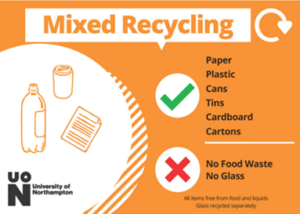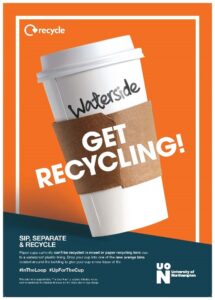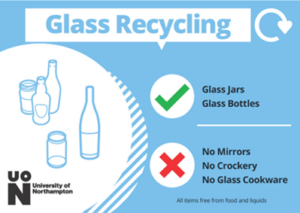Resource Management
The University is committed to the sustainable management and efficient use of natural resources within its operations and supply chains. Waste prevention is a key priority at the university, our Waste Management Policy and Waste Management Plan (PDF, 313 KB) focuses on the reduction and prevention of waste at source crucial for achieving carbon reduction goals and ultimately reaching Net Zero emissions targets.
We are actively engaging with staff, students and visitors to encourage them to follow the waste hierarchy:
- Prevention: The prevention of waste and responsible consumption of resources is considered across all University departments.
- Reuse / Donate: On-site Children’s Air Ambulance clothing banks encourage our students and staff to donate unwanted clothing items. Items not accepted by the clothing banks can be collected by Anglo-Doorstep Collections. Previous re-use initiatives include work with the Phoenix resource centre through the donation of desks, chairs, IT equipment for use here in the UK and in Djibouti. Our Single Use Plastic and Disposable Item Policy is created to encourage the use of re-useable items i.e. re-usable cups and water bottles. See our maps for locations of water coolers across campus.
- Recycle: From take away cups and food waste to vapes and batteries, a selection of recycling bins across the estate allow for a wide variety of items to be recycled.
- Dispose: For waste that cannot be recycled and as a last resort our remaining municipal waste is taken for EFW processing.
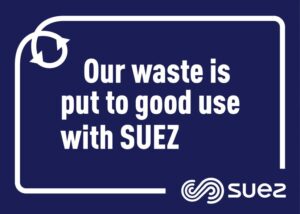
Our goal is to reduce the volume of waste produced across all residential and non-residential buildings through educating staff and students on responsible consumption and the importance of waste reduction, responsible waste management practices and the positive impact these practices have on the environment.
Awareness and behavioural change campaigns play an important part in educating our staff and student community in the correct way to dispose of waste, we do this by supporting national campaigns and various waste reduction projects.
Waste projects in action
- Student Move Out
- Children’s Air Ambulance (CAA)
- Up for the Cup
- Campus move prevented more than 800 tonnes of material going to waste.
- UON Swap Shop
To keep up with projects and initiatives follow us on Instagram @uon_sustainable.
United Nations Sustainable Development Goals
We use the United Nations Sustainable Development Goals (SDGs) as a framework to guide our activity. Our resource management policies and projects are linked to the following SDGs:
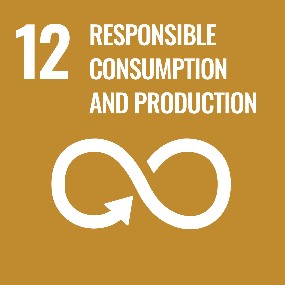
Goal 12: Responsible Consumption and Production
Find out more about our impact on the SDGs
